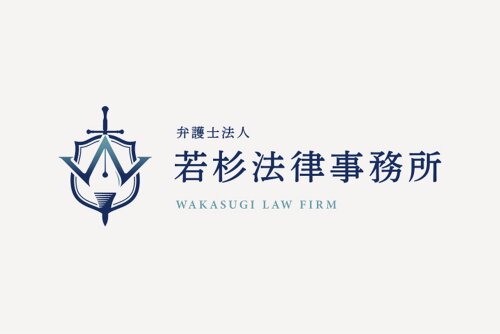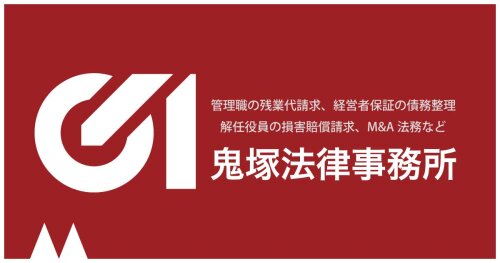Best Creditor Lawyers in Fukuoka
Share your needs with us, get contacted by law firms.
Free. Takes 2 min.
List of the best lawyers in Fukuoka, Japan
About Creditor Law in Fukuoka, Japan
Creditor law in Fukuoka, Japan is governed by national statutes such as the Civil Code, Bankruptcy Act, and the Civil Execution Act, with local courts and organizations playing significant roles in resolving disputes. A creditor is any individual or entity to whom a debt is owed. In Fukuoka, like elsewhere in Japan, creditor protection and debt collection are structured carefully to balance the rights of creditors with debtor protections. Legal action, negotiation, and alternative dispute resolution are all utilized within this framework.
Why You May Need a Lawyer
There are many reasons why someone in Fukuoka might need legal help in relation to creditor matters. Common situations include:
- Pursuing collection of unpaid debts from individuals or businesses
- Responding to a debtor who disputes the amount owed or claims inability to pay
- Negotiating repayment schedules or settlements with debtors
- Participating in bankruptcy or civil rehabilitation proceedings
- Securing or enforcing liens or other security interests in property
- Ensuring compliance with debt collection laws to avoid legal liabilities or penalties
- Understanding cross-border debt collection when the debtor or assets are located outside Fukuoka, or even outside Japan
- Protecting creditor rights during insolvency or company liquidation
A lawyer experienced in creditor law can provide invaluable guidance, help avoid costly mistakes, and advocate on your behalf in negotiations or litigation.
Local Laws Overview
In Fukuoka, creditor rights and responsibilities are primarily established by national Japanese law, but local courts and procedures can vary. Key aspects include:
- The Civil Code sets out the foundations for creditor and debtor relationships, including rules on contracts, repayment, default, and damages
- The Civil Execution Act provides mechanisms for creditors to enforce judgements, such as wage garnishment, seizure of assets, or real estate auctions
- The Bankruptcy Act and Corporate Reorganization Act outline processes for insolvency, including the order in which creditors are paid and rights during bankruptcy or restructuring
- Strict regulations restrict certain aggressive tactics by creditors, and failure to comply can lead to penalties
- The local Fukuoka District and Summary Courts handle most disputes relating to debt recovery and creditor claims
- Mediation or conciliation is often encouraged before resorting to litigation
Understanding these frameworks is critical to protecting your interests as a creditor and ensuring compliance with legal standards.
Frequently Asked Questions
What is a creditor under Japanese law?
A creditor is any person or entity that is legally owed money or performance of an obligation by another party, known as the debtor.
How can I legally collect a debt in Fukuoka?
You may request payment directly, send formal demands, use mediation services, or, if necessary, file a claim in the Fukuoka courts to obtain a judgment and enforce it through legal procedures.
Can I charge interest on unpaid debts?
Yes, but the amount of interest is capped by law to prevent usury. The rate varies depending on the type of obligation and the time period involved.
What happens if a debtor declares bankruptcy?
Creditors are notified and may need to file their claims with the bankruptcy court. The court will determine the distribution of available assets according to statutory priorities.
Are there time limits for claiming debts?
Yes. The statute of limitations depends on the nature of the debt, but many debts are subject to a five-year limitation period. Some claims, such as promissory notes, may have different periods.
What steps can I take if a debtor is avoiding payment?
After exhausting amicable methods, you may file a lawsuit to obtain a judgment, then seek enforcement measures through the court, such as asset seizure or wage garnishment.
Am I required to use a lawyer to collect a debt?
You are not legally required, but legal representation can be highly advantageous, especially for complex or contested cases.
What risks are involved in debt collection as a creditor?
Risks include legal missteps, violating debtor protection laws, and incurring costs if the debtor is insolvent or successfully contests the claim.
Can foreign creditors collect debts in Fukuoka?
Yes, but you may face additional legal and procedural steps and are encouraged to retain a Japanese lawyer experienced in cross-border matters.
How do court costs and fees work in creditor disputes?
Court filing fees in Japan are based on the amount claimed. You may also need to pay for legal representation and enforcement fees, although the losing party may be ordered to reimburse some costs.
Additional Resources
If you are seeking more information or assistance, consider the following resources:
- The Fukuoka Bar Association - Provides lawyer recommendations and legal consultation services
- Fukuoka District and Summary Courts - Handles creditor and debt collection cases
- Legal Support Center (Houterasu) - Offers free or low-cost legal advice and mediation services
- Japanese Ministry of Justice - Publishes resources on civil procedures and debtor-creditor laws
- Local mediation and arbitration centers - Facilitate negotiation between creditors and debtors
Next Steps
If you believe you need legal assistance regarding a creditor issue in Fukuoka, consider the following steps:
- Gather all relevant documents and evidence of the debt or obligation
- Document any communication with the debtor, including payment requests and responses
- Consult with a local lawyer who specializes in creditor rights and debt collection
- Explore mediation or negotiation before proceeding to litigation if appropriate
- If legal action is necessary, your lawyer will guide you through filing a claim, attending court hearings, and pursuing enforcement if you win
Early action and professional legal support can enhance your chances of successful debt recovery while minimizing risk and ensuring you comply with local laws and procedures.
Lawzana helps you find the best lawyers and law firms in Fukuoka through a curated and pre-screened list of qualified legal professionals. Our platform offers rankings and detailed profiles of attorneys and law firms, allowing you to compare based on practice areas, including Creditor, experience, and client feedback.
Each profile includes a description of the firm's areas of practice, client reviews, team members and partners, year of establishment, spoken languages, office locations, contact information, social media presence, and any published articles or resources. Most firms on our platform speak English and are experienced in both local and international legal matters.
Get a quote from top-rated law firms in Fukuoka, Japan — quickly, securely, and without unnecessary hassle.
Disclaimer:
The information provided on this page is for general informational purposes only and does not constitute legal advice. While we strive to ensure the accuracy and relevance of the content, legal information may change over time, and interpretations of the law can vary. You should always consult with a qualified legal professional for advice specific to your situation.
We disclaim all liability for actions taken or not taken based on the content of this page. If you believe any information is incorrect or outdated, please contact us, and we will review and update it where appropriate.










